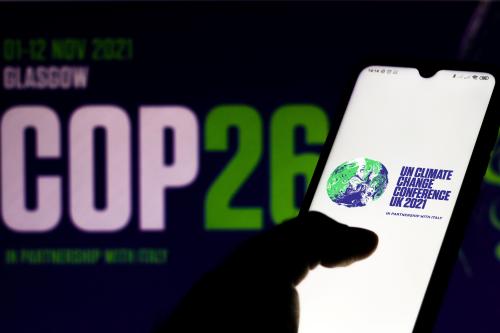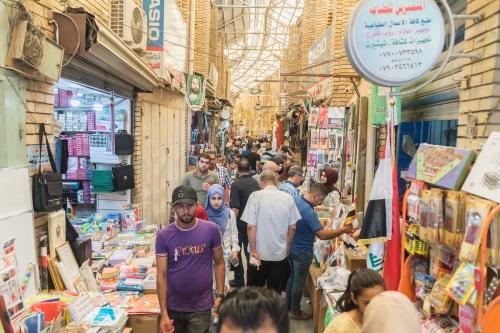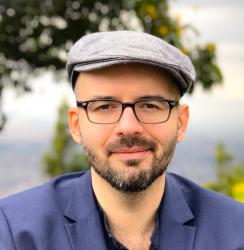Should international financial institutions (IFIs) engage in scientific research? According to Nobel Prize-winning economist Paul Romer, the answer is no. During an interview in May, he argued that organizations like the World Bank aim to fulfill two missions that are fundamentally at odds: diplomacy and research. He sees diplomacy as requiring the use of “convenient fictions,” which compromise the pursuit of truth and the integrity of science.
Romer is a highly accomplished thinker whose well-known theory of endogenous growth is fundamentally about the power of ideas to drive human progress. His argument that a multilateral development bank cannot pursue both science and diplomacy points to the potential trade-offs between generating scientific insights and putting them to good use. His comments may also reflect his own experience, as Romer is a former World Bank chief economist. But suggesting, as he does, that IFIs should outsource their research would deprive them of the very asset that makes them effective platforms for diplomatic action—their knowledge and technical prowess. Especially in emergencies, IFIs can provide evidence-driven policy responses that diplomats can then adapt and use. A look at recent interventions in fragile and conflict-affected situations shows how.
Take the issue of forced displacement. According to the U.N. High Commissioner for Refugees, nearly 80 million people are forcibly displaced worldwide in 2020. As a result of the Syrian crisis, 20 percent of the people in Lebanon and as much as 50 percent of the population in some areas of Jordan are refugees. This massive influx of people crippled growth, weakened macroeconomic balances, strained services, and ultimately threatened stability. But in 2016, multilateral development banks and the U.N. created a new financing instrument that used donor contributions to lower the cost of borrowing so that Jordan and Lebanon could afford emergency investments in health, education, and infrastructure. With lower interest rates, these countries could take on additional debt to support the livelihoods of noncitizens affected by war. They provided a global public good in the heart of a geopolitical hot zone.
This intervention would have been impossible without the rigorous research conducted by IFIs and bilateral development partners for more than a decade. Starting in 2009, a series of papers and studies began exploring the economic dimensions of forced displacement. Research identified and filled data gaps on refugees and host communities, and articulated the nexus between displacement and development as it manifests in service delivery, livelihoods support, and land administration. By 2017, a flagship U.N.-World Bank report laid the groundwork for $2.2 billion worth of financing aimed to help the poorest countries deal with the longer-term development challenges of forced displacement.
This approach—using scientific insight to shape a platform for cooperation and diplomatic action that provides global public goods—is being applied in other emergency development responses to crises. In 2018, the joint U.N.-World Bank report on the prevention of violent conflict analyzed the cost-effectiveness and trade-offs associated with supporting early efforts to sustain peace. The findings then shaped the creation of new financing instruments for investments that can help avoid escalating patterns of violence. Another example is the analysis of public spending on defense, police, and justice institutions to uncover resource misallocations and improve the governance of the security sector. This type of diagnostic is highly relevant today in the Sahel—both as a way to improve the accountability of military and police to citizens, and to shape a coherent international assistance strategy to Sahelian countries.
What about the argument that universities could perform the research, while the IFIs and the U.N. could use it for diplomacy? Some of the studies cited above adhere to the strict canons of basic research, but the majority do not. Their contribution lies in providing sound evidence and frameworks for coherent development assistance, rather than breaking new theoretical ground. Policy research produced for IFIs may not qualify for top-flight academic journals, and hence may be a less attractive source of scholarly pedigree. Moreover, the pursuit of economic development in fragile states, where 60 percent of the global poor may live by 2030, is better suited to applied research methods that foster adaptive management in development projects. Consequently, for science to be impactful on policy and financing, IFIs must do more than just identify research questions. They must negotiate access to (and secure the integrity of) country data, build local capacities, and disseminate findings with key decisionmakers—something that universities cannot accomplish from start to end.
Similar challenges would also make it impossible to outsource the IFI’s research function to the private sector. For example, research in fragile states involves higher operating costs, which would limit competition to larger international companies. In some cases, connections between private firms, their local partners, and local elites could also blur accountability lines and skew findings. Private firms and universities could, and already do, support IFI’s research programs, especially with highly specialized skills that augment the IFI’s technical prowess. But for research findings to translate into global public goods, IFIs must lead—and be accountable for—the full extent of the research process and its outcomes.
The research performed by IFIs is not immune to criticism. A 2014 study pointed out that 30 percent of World Bank reports did not get downloaded. Professor Romer has also been outspoken about the need to communicate research with greater precision. But none of these drawbacks makes a powerful case for IFIs to outsource their research function. Instead, IFIs should make knowledge even more central to their missions. They should also find ways to better communicate their messages to a global audience—something that diplomats in their role as facilitators could actually help with. As the COVID-19 pandemic continues unabated, the world needs better convening. The analytical firepower of IFIs to support diplomacy and foster collective action is one of our best hopes.
The Brookings Institution is committed to quality, independence, and impact.
We are supported by a diverse array of funders. In line with our values and policies, each Brookings publication represents the sole views of its author(s).








Commentary
What can development research do for diplomacy?
November 12, 2020